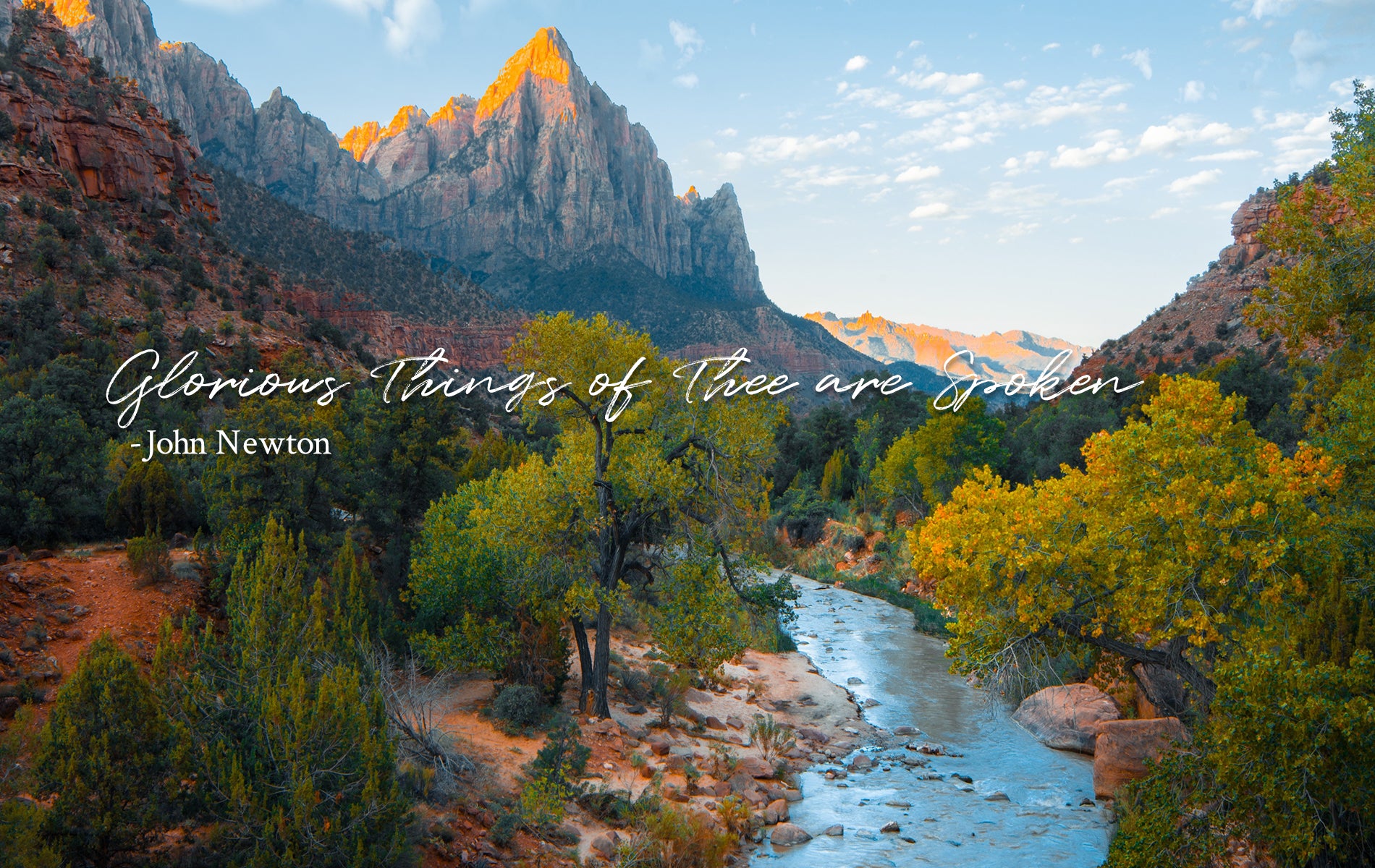
The story of John Newton, author of “Glorious Things of Thee Are Spoken,” is well-known. “Amazing Grace” is the personal testimony of how Newton, a vulgar and profane man, had his life transformed by Christ. Once a slave trader and sea captain, he became a minister of the gospel and hymn-writer. Influenced by Whitefield and the Wesleys, he became a preacher in 1764 at the age of 39.
Newton was sent to minister in the small village of Olney near Cambridge, England. Most of the people there were poor and illiterate, living very meager lives and enduring much hardship. He loved and ministered to them, even though the wealthy members of the congregation resented having the unseemly and noisy villagers in their services. It was at Olney that Newton and William Cowper, the well-known poet, established a strong friendship. He and Cowper wrote hymns to be sung at the weekly evening prayer meetings. John suggested that the two of them compile a collection of hymns. The result was “Olney Hymns” (published in 1779), one of the most important contributions to evangelical hymnody. The hymns express the spiritual experiences and convictions of the authors, combining the ruggedness of Newton and the gentleness of Cowper.
“Glorious Things of Thee Are Spoken” is considered to be one of Newton’s finest hymns. Old Testament imagery showing the fulfillment of God’s promise to His chosen people assured His presence and leading in the local church as well. The opening stanza expresses the author’s love for Psalm 87: Glorious things are spoken of thee, O city of God. Selah. (Psalm 87:3)
“Zion” is a metaphor for the Church which was founded on the “Rock of Ages,” Jesus Christ. The phrases express the reality of God’s presence, grace, provision, and preparation of an eternal home for those who have been “Washed in the Redeemer’s blood.” The last stanza is a reminder that Christians are not of this world and should not to be conformed to its fading pleasures. (Romans 12:1-2) This hymn was written by the crusty old sea captain as an encouragement to the destitute folks of his congregation. It was his way of telling them to “Be of good cheer,” as Christ had spoken to the disciples before his arrest: These things I have spoken unto you, that in me ye might have peace. In the world ye shall have tribulation: but be of good cheer; I have overcome the world. (John 16:33)
In spite of his failing eyesight, John Newton continued to preach until his death at 82. His hymns still influence lives today, as they did over 200 years ago. The most commonly-used tune for this hymn is “Austria,” written by eighteenth-century master composer, Franz Joseph Haydn. The text sung with the uplifting tune makes a triumphant congregational song.
Zion, city of our GOD!
He, whose word cannot be broken,
Formed thee for his own abode:
On the rock of ages founded
What can shake thy sure repose?
With salvation’s walls surrounded
Thou may’st smile at all thy foes.
Springing from eternal love;
Well supply thy sons and daughters,
And all fear of want remove;
Who can faint while such a river
Ever flows their thirst t’ assuage?
Grace, which like the LORD, the giver,
Never fails from age to age.
See the clouds and fire appear!
For a glory and a cov’ring,
Showing that the Lord is near:
Thus deriving from their banner
Light by night and shade by day;
Safe they feed upon the manna
Which he gives them when they pray.
Washed in the Redeemer’s blood!
Jesus, whom their souls rely on,
Makes them kings and priests to GOD:
’Tis his love his people raises
Over self to reign as kings,
And as priests, his solemn praises
Each for a thank off’ring brings.
I through grace a member am;
Let the world deride or pity,
I will glory in thy name:
Fading is the worldling’s pleasure,
All his boasted pomp and show;
Solid joys and lasting treasure,
None but Zion’s children know.
All rights reserved. Without the express written permission of the publisher, this publication may not be reproduced or transmitted, whether in whole or in part, in any form or by any means - electronic, mechanical, photocopy, storage retrieval system, recording, or any other.

1 comment
These Melody Moments are so beautiful! Compiled into a beautiful book (complete w/the art work) of inspiration, OR into a blog for subscription complete w/audio of each hymn. I do forward them sometimes to meet a spiritual need of someone I know. I find them wonderful! Thank you for producing them.